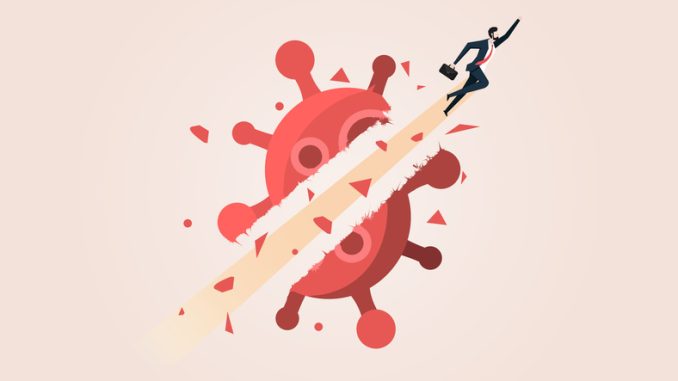As reported by The BMA, as the COVID-19 pandemic surpasses four years, the British Medical Association commemorates those lost, reflecting on the profound impact and sacrifices made during this enduring crisis
Professor Phil Banfield, BMA council chair:
When I think back to its start, I recall the initial reports emerging from Wuhan, and then the steady, inexorable and terrifying spread, through central and southern Europe, leaving overwhelmed people and systems in its wake. In late January we experienced the first identified case in the United Kingdom and the start of what was to become an unfolding tragedy spanning weeks then months, and now years.
I remember that sudden realisation that all of us going to work in a hospital or general practice were now entering an environment that posed a credible and very real threat to ourselves as well as our families. We faced the probability that some of us would not make it out the other side. I started to prepare. My wife, Steph, a GP partner, and I, updated our wills and our life insurance.
Just as we planned our personal lives, so too did we plan for the onslaught unfolding in Italy – an overwhelmed health service, a health service repurposed to keep as many people alive as possible without the therapeutics or vaccines to treat this novel virus. A lasting memory will always be of an intensive care colleague working out the physics of how oxygen flows through pipes on a flipchart so we could, by whatever means, get oxygen to more people in more parts of the hospital to help as many people as possible.
There was a spirit of being in this fight together but then, colleagues start to become sick, you hear that someone you know has been admitted to intensive care, and when they lose their life, that danger you hoped you were immune from cast deep shadows across tightknit communities. We mourned their loss, picked ourselves up and had to keep on working.
It was a brutal time, with restricted visiting and inhuman goodbyes on WhatsApps and Zoom. We held hands, but it’s not the same with a mask and gloves on. The moral injury has scarred carers and families alike.
In general practice, GPs were dealing sometimes with multiple deaths in care homes of people they may have known for decades, and whose families they cared for too. All the best parts of medicine – the personal, the compassionate and the very human care we deliver – all of this deepened the loss experienced.
So I want to take this opportunity to offer my heartfelt condolences to everyone who experienced bereavement. It is important we all remember this tragedy and renew our collective will to never allow such suffering again. A special memorial, made from Portland stone, resides in the central courtyard of BMA House, in London, and will serve as an enduring symbol of respect and remembrance. This weekend, we’ll remember colleagues, friends and relatives too.



Be the first to comment